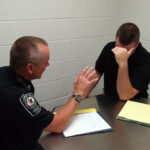What is a Deferred Prosecution?

Deferred Prosecution, a remedy one can have only once per lifetime, is governed by RCW 10.05, found at: https://app.leg.wa.gov/rcw/default.aspx?cite=10.05&full=true. Deferred prosecution is one of the ways to deal optimally with a DUI (or any nonfelony charge) primarily used to resolve DUI charges, with any companion counts, with a treatment-based plan of two years of outpatient treatment followed by 3 more years of abstinence and often continuing support group meetings.
In the end, the case – and all of its charges – is completely dismissed PROVIDING THAT the petitioner-defendant has been compliant with their court-ordered alcohol/drug and/or mental health treatment and all court conditions, including probation meetings, having a functioning interlock device on one’s personal vehicle, payment of all fines and court fees, no new criminal law violations, and full compliance with all probation requirements.
A deferred prosecution is a lot of hard work and commitment, but the dismissal at the end makes it all worthwhile to those who get that result. It should only be obtained for clients who plan to remain abstinent and to seriously do all that is required of them or it will be revoked and jail time could result.

It is imperative to carefully abide strictly by the court’s and probation department’s rules re: deferred prosecution. There are 5 rules in particular that are quite perilous to violate. These are certain probation conditions of a deferred prosecution that, if violated, each require the court to impose and will subject you to 30 days of jail time per violation. These include: (i) Not driving a motor vehicle within this state without a valid license to drive; (ii) not driving a motor vehicle within this state without proof of liability insurance or other financial responsibility for the future pursuant to RCW 46.30.020; (iii) not driving or being in physical control of a motor vehicle within this state while having an alcohol concentration of 0.08 or more or a THC concentration of 5.00 nanograms per milliliter of whole blood or higher, within two hours after driving; (iv) not refusing to submit to a test of his or her breath or blood to determine alcohol or drug concentration upon request of a law enforcement officer who has reasonable grounds to believe the person was driving or was in actual physical control of a motor vehicle within this state while under the influence of intoxicating liquor or drug; and (v) not driving a motor vehicle in this state without a functioning ignition interlock device as required by the department under RCW 46.20.720. The court may impose conditions of probation that include non-repetition, installation of an ignition interlock device on the probationer’s motor vehicle, alcohol or drug treatment, supervised probation, or other conditions that may be appropriate. The sentence may be imposed in whole or in part upon violation of a condition of probation during the suspension period.
Depending upon the local rules of the specific court you might or might not have to attend the final hearing where your DUI is eventually dismissed. If you are in full compliance, completed the 2-year treatment program on time and without any problems or any major ones, and complied with all the other court’s conditions, many courts do not require your appearance and will dismiss the case administratively, without a hearing.

I have used deferred prosecutions for crimes other than DUI, but this cannot be done when the charge is one of domestic violence. (In that event though, we can still seek dismissal via a SOC – Stipulated Order of Continuance, or a deferred sentence.) The Domestic Violence Task Force recommended that deferred prosecutions not be granted in cases of domestic violence.
Everyone on a deferred prosecution should remember that a court probation officer is assigned for all cases involving deferred prosecution and recommends to the court whether the petition should be granted under the criteria of RCW 10.05. The assigned probation officer discovers that the defendant was convicted three years ago of vehicular homicide involving alcohol intoxication.
If you are considering a deferred prosecution, look at this, from the Snohomish County
Prosecuting Attorney’s Office’s “Charging and Disposition Standards,” Adam Cornell
Snohomish County Prosecuting Attorney, Updated October 30, 2017, starting at Page 37:
7.00 INTRODUCTION
These standards are intended to guide the disposition of cases in District Court. Our district courts have jurisdiction over misdemeanor and gross misdemeanor cases. District Court judges have broad discretion to sentence offenders up to the statutory maximum for the crime charged because these cases are not governed by the Sentencing Reform Act. Typically, a judge can sentence and offender up to 90 days for a misdemeanor and 364 days for a gross misdemeanor. Some offenses have mandatory minimum sentences that must be adhered to. These standards set forth default sentencing recommendations for the most frequently litigated misdemeanor and gross misdemeanor cases. They have been established to try to promote consistent sentencing practices.

As in Superior Court, judges have a number of sentencing options they may consider in District Court cases. They include total or partial confinement; imposition of community restitution hours; imposition of probation and crime-related conditions of probation; and payment of costs, fines, assessments as well as restitution payments to victims for easily ascertainable loss or damages. Additionally, the court often has the option of deferring or suspending some jail time and/or a fine on condition the offender complies with the other terms of the sentence. See Section 8.02 for guidelines relating to these forms of probationary sentences. Furthermore, other alternative resolutions may be available, such as a deferred prosecution; the “compromise” of a misdemeanor; or Mental Health Court. Each of these options is discussed in more detail below.
7.01 DEFERRED PROSECUTION
RCW 10.05 establishes the deferred prosecution program.
A. It should be made available only to defendants:
1. Who are in fact guilty;
2. Whose criminal conduct is caused by alcohol, drug, or mental problems;
3. Whose probability of re-offending is great if not treated;
4. Who are serious about receiving treatment and are accepted into a program; or
5. Whose conduct does not demonstrate a manifest danger to other persons.
A defendant is only eligible for one deferred prosecution.
B. Guidelines for Concurrence
1. The Deputy Prosecutor shall oppose the petition if it is presented to the court after one of the following motions has been argued:
a. motion to dismiss the charge(s);
b. motion to suppress evidence; or
c. motion to produce particularly burdensome discovery;
2. The petition should be presented seven days before the trial date as required by statute. The Deputy Prosecutor shall object to a petition presented on the day of trial, especially if any witnesses or jurors are needlessly present.
3. The petition must have prior approval from the Probation Department of the District Court Division where it is presented.
4. The petition must be in writing and signed by the defendant personally under oath.
5. The petition shall either:

a. contain a proposed treatment program prepared by a State certified or approved agency; or
b. indicate the approved agency or agencies that the defendant intends to contact.
6. The petition must allege that:
a. the conduct charged resulted from an alcohol, drug, or mental problem;
b. the problem requires treatment; and
c. there is a high probability that the conduct will recur without treatment.
Facts and reasons must be supplied to support these claims.
7. The petition must stipulate to the admissibility of the police incident reports in case the deferred prosecution is revoked.
8. The petition must waive the defendant’s right to a speedy trial and acknowledge all of the rights to which he/she is entitled.
9. The petition must state that
a. the defendant agrees to pay the cost of diagnosis and treatment; or
b. the defendant is unable to pay such costs.
10. The order on deferred prosecution entered must be the order provided by the Court.
11. The defendant agrees to not drive without a valid license, insurance, and ignition interlock (as ordered by DOL).
12. Exclusions. Absent good cause, the Deputy Prosecutor will not concur where any of the following are present:

a. The defendant has previously participated in a deferred prosecution program. (Note: If the prior deferred prosecution was pursuant to 10.05, the defendant is statutorily ineligible for another deferred.)
b. The conduct involved behavior manifestly dangerous to other persons. The Deputy Prosecutor should consult with the arresting officers and the victims/witnesses to ascertain the seriousness of the conduct. Normally, a defendant charged with Assault, Reckless Driving, or Hit and Run (attended) should not be allowed to obtain a deferred prosecution.
c. The charged crime addresses behavior which was not caused by alcohol, drug or mental problems (such as most instances of DWLS). In such cases the accused shall plead guilty or stipulate to such non-related charges before the Deputy Prosecutor concurs in the deferred prosecution of any otherwise appropriate charges(s).
d. The conduct involved damage to property and the defendant has not made restitution.
C. Exceptions
Exceptions to these policies may be made for good cause. Examples of good cause include:
1. the defendant has such a substantial prior record, including jail time, that there is no reasonable expectation that further court proceedings would deter future offenses; and
2. the victim supports the defendant’s request for deferred prosecution.

D. Approved Treatment Agencies
The Deputy Prosecutor will not approve a deferred prosecution petition unless the treatment agency contacted (or to be contacted) by the defendant is an approved agency pursuant to RCW 70.96A or 71.24.
E. Objections
Whenever a Deputy Prosecutor objects to the granting of a deferred prosecution petition, the reason(s) therefore shall be fully stated on the court record and noted in the prosecution file.
LET’S MEET FOR A FREE INITIAL CONSULTATION TO SEE WHAT’S BEST FOR YOUR UNIQUE CASE AND LIFE CIRCUMSTANCES AND GOALS.
I look forward to discussing your case with you and we’ll definitely covert the subject of a deferred prosecution in detail if it applies to your case and situation. I have only been denied a deferred prosecution for a client one time, over 25 years ago, after the client lied to the Redmond court, and to me, about his undisclosed 4 additional prior DUIs back East that the court had a right to know of. In the courtroom, your defense lawyer may be your only friend, but I am always your friend in the courtroom.

Call NOW — (425) 455-4784 for a free consultation with Seattle area DV Attorney Phil Weinberg. Proven, effective, aggressive but tactful DV defense for over 30 years.
The most important call you will make for your future. Don’t settle for less than the caring, skilled representation I always deliver.
Office: (425) 455-4784, or on my Cell Phone: (425) 367-1122. You can of course also email me at phil@weinbergdui.com.

Proven Criminal Defense Success:
See My Reviews

Since 1986 – Serving all of:
King County and Snohomish County

